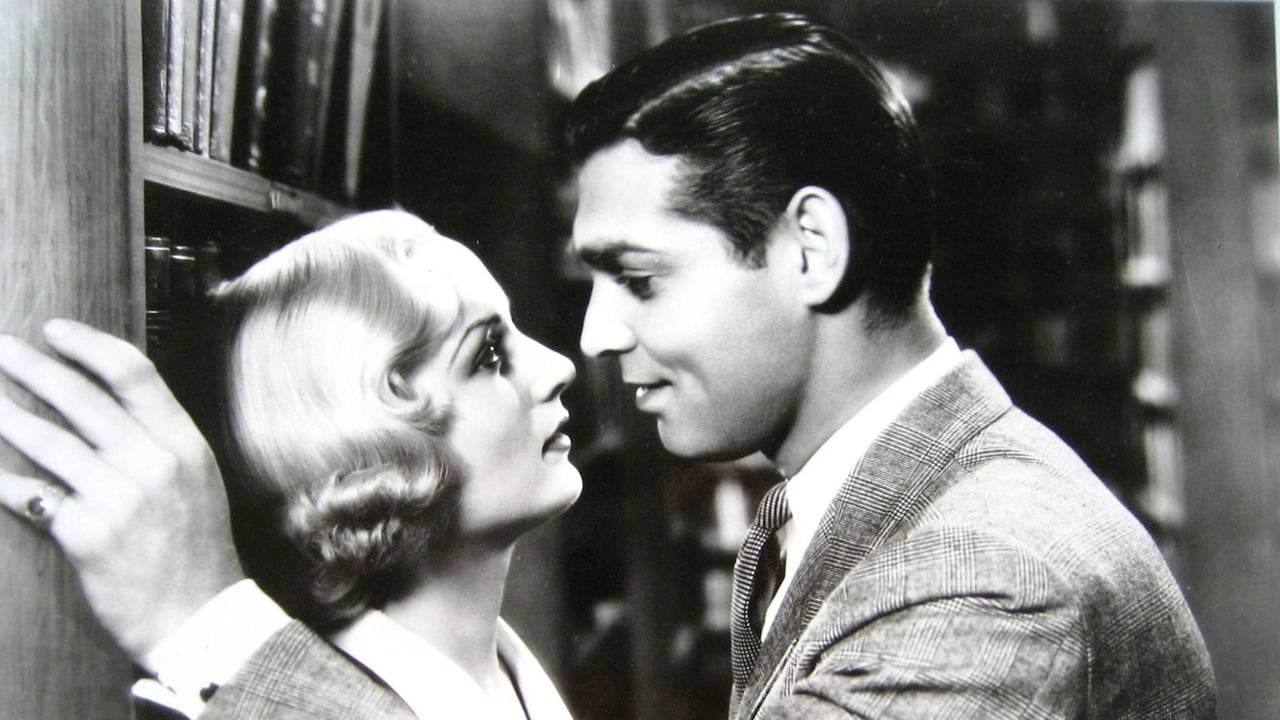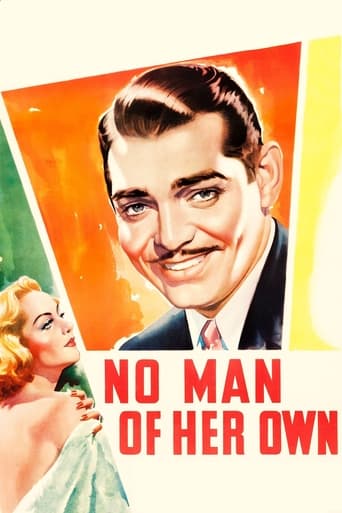Platicsco
Good story, Not enough for a whole film
Dorathen
Better Late Then Never
Peereddi
I was totally surprised at how great this film.You could feel your paranoia rise as the film went on and as you gradually learned the details of the real situation.
Kirandeep Yoder
The joyful confection is coated in a sparkly gloss, bright enough to gleam from the darkest, most cynical corners.
Jay Raskin
Clark Gable, Carol Lombard, Dorothy Mackaill, and Grant Mitchell are all excellent actors. There careers were thriving at this point. It may have been depression times, but this warm and witty comedy hardly notices.Maurine Watkins who wrote the play "Chicago" in 1927, contributed to the screenplay. I think we have her to thank for a sophisticated point of view towards morals and for Lombard's character being able to show desire and passion with truth and subtlety. Being a librarian in a small town (Glendale) and realizing that Gable is a big city slicker and ladies man trying to seduce her, she rightly rejects him. However, being bored out of her mind with a small town life in her small town, she decides to gamble on him for a chance to escape. She's a lot less puritanical than Marian the Librarian from "The Music Man." The movie has a Damon Runyon flavor to it. The crooks and cops are playing a gentlemanly game and give each other sporting chances. In this respect it reminds one of Little Miss Marker.Dorothy MacKaill's character plays an angry, criminal woman who also has a passion for Gable. She could also be a character from Wakkin's "Chicago."The film is a delight with many skillfully executed twists and turns that still surprises us.
JohnHowardReid
This delightful romantic comedy/drama was directed with both style and polish by Wesley Ruggles. It also has sharp, zippy film editing, plus a script that observes its characters with a wry sophistication and a puckish sense of observational humor. Gable is perfectly cast. In fact, it is astonishing that even at this early date, we find his forthright acting style and his charming, easy-going movie manner in full flower. Miss Lombard, dressed and undressed to the nines, partners him perfectly. It's interesting that she actually married Gable seven years later (and as we all well know, he never ever, ever recovered from her death in a commercial plane crash on January 16, 1942, whilst returning from a Victory Bond tour for the U.S. government). To get back to this movie, Carole is actually run pretty close here by Dorothy MacKail. Grant Mitchell has a sizable role which he plays deftly. Other roles are also very competently played. The film also has the usual lavish Paramount production values, but these include slick, glossy, lustrously black photography which is most unusual for a Paramount movie. The studio usually favored soft focus and low contrast. Tover's style here was much in favor at 20th Century Fox in the late 1930s and early 1940s. Finally, but not least, I'd draw attention to the sparkling music score which was actually compiled from stock contributed by no less than four composers.
Incalculacable
I mainly got this out because I wanted to see some eye candy: Clark Gable and the wonderful Carole Lombard (plus all the wonderful '30s fashions). It's a good screwball comedy, but a little boring until Carole Lombard comes into the picture. I found some scenes unnecessary and a little boring, but there are some genuinely good scenes with Lombard in it - she really is the queen of screwball comedies. Her comic timing is wonderful. I was very much impressed. Clark is as usual very handsome and sexy. I'm not familiar with the pre Hollywood code but I guess this would be fairly risqué as Carole is shown in her underwear. A good movie, nothing special, but fun to watch.
Ben Parker
The perks of this movie are many: a fun screwball comedy set-up involving card-sharking, two beautiful stars looking young and fantastic (you'll see why women first fell in love with Clarke Gable, and found him ideal to play Rhett Butler), the only on screen pairing of said stars, who were to become husband and wife. He would love her long after she died in a tragic plane accident on a mission to sell war bonds (i think it was). Another perk is the pre-production code raunchiness. You may notice that any movie made between 1930-1934 seems a lot racier than movies made before or after then. This is because in this short period there was no censorship of movie content, and no rules to say what you could and could not show on screen. This was left to the filmmaker's discretion. So you'll find shots of Gable in the shower, and Lombard also, though she is much less exposed. Not actual nudity, of course, but open sexiness banished from movies from 1934 till whenever the Hayes code ended - such as Gable asking Lombard the librarian to fetch him a book from the top shelf so she has to climb up the ladder and he can look at her legs.If you've never seen a screwball comedy, you might be pleasantly surprised. They're all pretty fun. Bringing up Baby with Cary Grant and Katherine Hepburn is probably the best one. They were all the rage in the 30's, and Carole Lombard was the ideal screwball heroine. To be recommended.

